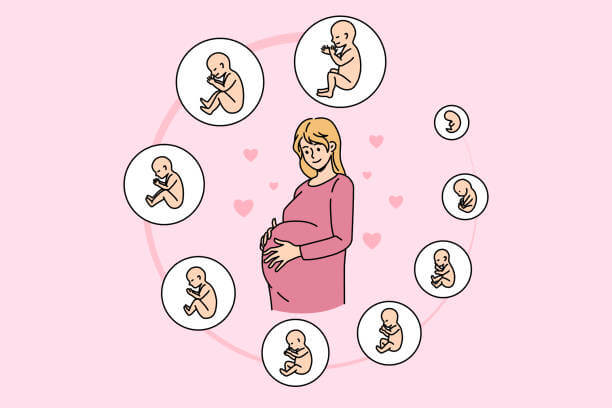Why Does Pregnancy Change Your Skin?
Pregnancy brings significant hormonal and physiological changes that often affect the skin in various ways. Here’s a look at why and how pregnancy can change your skin.
1. Increased Blood Flow and Glowing Skin
One of the most well-known skin changes during pregnancy is the “pregnancy glow.” Higher blood volume during pregnancy boosts circulation, bringing more blood to the skin and giving it a radiant look. Additionally, hormonal changes stimulate oil glands, which can make skin appear more luminous but can also lead to breakouts.
2. Hyperpigmentation and the “Mask of Pregnancy”
Due to rising estrogen and progesterone, some women develop areas of hyperpigmentation or dark spots. Melasma, commonly called the “mask of pregnancy,” is when brown patches appear, especially on the face. Limiting sun exposure and wearing SPF can help manage melasma. To further support your skin’s health, focus on balanced nutrition, as discussed in this guide to pregnancy food aversions and appetite changes.
3. Stretch Marks and Skin Elasticity
As the belly and breasts expand, skin stretches, often resulting in stretch marks. These typically form on areas where skin is under the most tension, like the abdomen, thighs, and breasts. While moisturizing regularly can help, stretch marks are largely genetic. You might find these tips for navigating pregnancy helpful in easing skin concerns during the first trimester in this first-trimester survival guide.
4. Skin Sensitivity and Acne
Hormonal fluctuations can make skin more sensitive to products and environmental factors. Some women may experience acne, even if they have not had it before pregnancy, due to the heightened production of sebum. A gentle, pregnancy-safe skincare routine can help manage sensitivity and prevent irritation.
5. Varicose Veins and Vascular Changes
Pregnancy can lead to visible changes in blood vessels, resulting in varicose or spider veins. This happens because blood flow increases, and the growing uterus adds pressure to the lower body veins. Regular movement and elevating your legs when possible may help alleviate these symptoms.
6. Itching and Dry Skin
Some women develop itching, especially on the belly, due to stretching skin. Keeping your skin moisturized and avoiding hot showers can reduce discomfort.
Each woman experiences pregnancy skin changes differently, influenced by genetics, lifestyle, and overall health. By understanding and caring for these changes, you can support your skin throughout your pregnancy journey.






